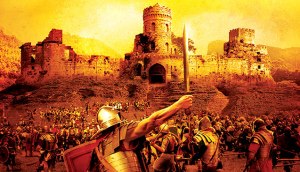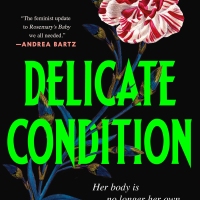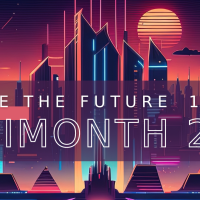Guest Post: “Your Heroes are False Idols” by Will Panzo
 Today it is with great pleasure that we welcome author Will Panzo to The BiblioSanctum to talk about his debut The Burning Isle, a novel of direful magics, cruel harsh places, and vicious gritty heroes who aren’t really heroes…ah, Grimdark, how I love thee! As a reader who frequently loves to venture into this darker side of the genre, I couldn’t be more thrilled when Will agreed to write a guest post for us detailing some of the inspiration that went into the creation of his world and protagonist. His book is now available in stores everywhere, so be sure to check it out. My review of it will be up soon; in the meantime, please sit back and enjoy this fascinating post!
Today it is with great pleasure that we welcome author Will Panzo to The BiblioSanctum to talk about his debut The Burning Isle, a novel of direful magics, cruel harsh places, and vicious gritty heroes who aren’t really heroes…ah, Grimdark, how I love thee! As a reader who frequently loves to venture into this darker side of the genre, I couldn’t be more thrilled when Will agreed to write a guest post for us detailing some of the inspiration that went into the creation of his world and protagonist. His book is now available in stores everywhere, so be sure to check it out. My review of it will be up soon; in the meantime, please sit back and enjoy this fascinating post!
YOUR HEROES ARE FALSE IDOLS
by Will Panzo
I don’t believe in heroes. That may sound strange from someone who writes fantasy novels, but it’s true. All heroes are false idols, the product of skilled artists who, like all good charlatans, are experts at audience manipulation. I can appreciate the idea of a hero, of course, someone who does what they think is right despite adversity. And I enjoy stories about heroes, root for them in movies and novels and comics. But ultimately my enjoyment of heroes comes with a heavy qualifier. I know I’m being manipulated by them.
To truly appreciate the falsehood of heroes, you have to know a little about professional wrestling. In professional wrestling, the job of a wrestler is not to win or lose any particular match. Those are scripted. The job of a wrestler is to get the crowd emotionally invested in the show. To accomplish this, wrestlers use psychology that, while simple, is quite effective.
Typically each wrestling match features a good and noble wrestler, referred to in wrestling parlance as the “face” (short for baby-face), and his opponent, the dastardly “heel”. Their feud is not real, but is instead a “work”. When a crowd takes an interest in the match, even though it’s fake, they are “getting worked”.
To gain sympathy for the face, it’s important to place him in danger, setting him against the seemingly insurmountable heel, an opponent who will use weapons, illegal maneuvers, outside interference and generally cheat to win. By fighting against difficult odds, and sticking to his moral code even under threat of defeat, the face can “go over” or win the support of the crowd. It’s a formula that has worked since the beginning of professional wrestling, and still works today.
The rules in fantasy literature are similar. Consider Bilbo and his dwarven friends confronting the fire-breathing Smaug. Or Harry Potter and his schoolmates facing down the dark wizard Lord Voldemort. Again and again, our simple and virtuous heroes battle impossible odds, eventually triumphing, all while maintaining their moral superiority. There’s nothing wrong with this kind of storytelling. It’s fun and makes for an entertaining tale. But when you read a story like this, no matter how much you enjoy it, you’re getting worked.
There is another heroic tradition in fantasy literature though, a darker tradition. In the past, this type of fantasy was called Sword and Sorcery or sometimes Low Fantasy (in contrast to Tolkien’s brand of High Fantasy). It’s exemplified by heroes like Robert Howard’s Conan, Fritz Leiber’s Fafhrd and the Gray Mouser, Michael Moorock’s Elric of Melnibone and Karl Edward Wagner’s Kane. Dark heroes, violent, conflicted, often tragic.
Recent incarnations of this type of story, made popular by the works of authors like George RR Martin, Joe Abercrombie and Steven Erikson, go by the name grimdark. What sets this type of fiction apart from its genre mates is a departure from the face/heel dynamic, as well as a deep distrust of heroes.
Grimdark stories are suspicious of people who act nobly without reason or consequence. A grimdark hero may still face insurmountable odds, but his reasons for fighting are never platonic ideas of good. Sometimes a grimdark hero fights for profit, or to save his own hide. Often he fights because the world is a cruel and uncaring place, and sometimes the only thing you can do is fight.
Grimdark heroes are never working you though. No one expects you to root for a grimdark hero because he’s a baby-face. In fact, no one expects you to root for them at all. A grimdark story compels you to read because the protagonist is interesting, not because it’s the right thing to do.
My novel, The Burning Isle, is unabashedly grimdark. Set in a fantasy version of ancient Rome it concerns a young spellcaster named Cassius who comes to the lawless island of Scipio to seek work as a mercenary. It’s a dark tale, full of magic and violence and revenge. But its hero believes he’s in a different type of story.
Cassius is very powerful but also very naïve. Obsessed with myths and legends, he fancies himself a hero come to a corrupt town to right a grievous wrong. Cassius believes himself morally superior to his foes, but his code of honor is tested at every turn. Death and violence are the only tools that seem to make a difference in this harsh place. And while our protagonist pictures himself a noble do-gooder at the center of an epic tale, the world around him proves more grimdark than High Fantasy. Can Cassius walk the righteous path till the end? Or will he learn the harsh truth the rest of us have known all along: there are no heroes in this world.
![]()
After working in publishing and as an editor for Marvel Comics, Will Panzo found his true calling as a physician assistant for an emergency department. THE BURNING ISLE is his first novel. He lives and works in New York City.
You can find him at http://www.willpanzo.com and on Twitter @WillPanzo.












This is a very interesting take on the hero myth, and I’m fascinated by the analogy with professional wrestling: I would never have made this comparison, but it sounds quite sensible… Thanks for sharing!
LikeLiked by 1 person
Interesting….though grimdark tends to make me go no
LikeLike
I’m really looking forward to reading this book, and agree with him about heroes. 🙂 A big part of the reason why I love grimdark is all of the shades of grey, it give you a better appreciation for perspective and that there are different ways to view a scenario. Who is right or wrong varies based on who tells the story and how much you know about each side. Grimdark gives you protagonists with their faults in full view.
LikeLike
Very interesting post, I tend to like my “heroes” unpredictable so I’m very much drawn to grimdark. Can’t wait to read this!
LikeLike
Pingback: Mogsy’s Bookshelf Roundup: Stacking the Shelves & Recent Reads | The BiblioSanctum